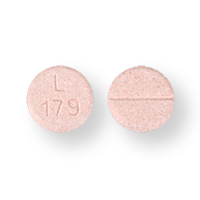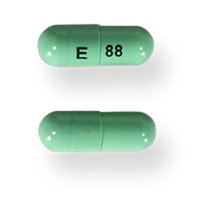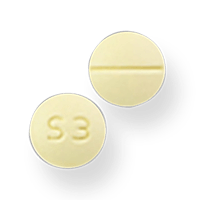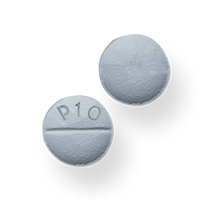Depression is a very common mental health condition. According to the National Institute of Mental Health (NIMH), around 17.3 million adults in the U.S. experience at least one major depressive episode. Female-identifying patients are also more likely to be diagnosed with depression when compared to male-identifying patients. Age can also play a role, as higher rates of depression are recorded among patients aged 18 to 25. Depression is also more common among people who identify as two or more races.
Depression

Depression is a medical condition that affects your mood, resulting in persistent feelings of sadness, disinterest, and apathy. It can lead to serious complications, including difficulty living everyday life and even suicidal thinking. There is no known cause, but doctors have identified a variety of factors that are linked with depression, including biological differences, hormones, certain life experiences, and family history.
There are three important neurotransmitters involved in understanding the chemistry of depression:
Serotonin: regulates mood, appetite, sleep, social behavior, memory, and sexual desire.
Dopamine: important for pleasure and reward, decision-making, motivation, and arousal.
Norepinephrine: regulates blood pressure and heart rate in response to stress and affects alertness and motor function.
Prescription drugs often target one or more of these neurotransmitters and allow for them to hang around longer so you feel their positive effects.

People Affected
Risk Factors
While the causes of depression are still not well understood, certain risk factors have been identified:
Family history (specifically of depression, bipolar disorder, alcoholism, or suicide)
Other medical conditions (such as hypothyroidism)
Other mental health conditions (including anxiety, eating disorders, and post-traumatic stress disorder)
Traumatic life experiences (such as physical and sexual abuse, loss of a loved one, relationship difficulties, financial difficulties, serious health conditions, or chronic illnesses)
Alcohol or drug abuse
Certain medications (such as some high blood pressure medications sleeping medications)
Signs & Symptoms
Symptoms of depression can include:
Sadness, tearfulness, emptiness, or hopelessness
Angry outbursts, irritability, frustration
Disinterest in everyday activities like sex, hobbies, or sports
Sleep disturbances (both lack of sleep or oversleep)
Tiredness and fatigue
Anxiety, agitation, and restlessness
Changes in appetite (everything from reduced appetite and weight loss to increased food cravings and weight gain)
Slower thinking, speaking, or body movements
Feelings of worthlessness or guilt
Difficulty concentrating, thinking, making decisions, and remembering things
Physical symptoms such as back pain, headaches, or stomach pain
Thoughts of death or suicide
If you have thoughts of suicide or are thinking about committing suicide, immediately contact a medical professional.
National Suicide Prevention Lifeline
Available 24 hours in English and Spanish.
1-800-273-8255
Pharmacist Tip
Most people find that taking medication is only part of treating depression. A form of behavior therapy called cognitive-behavior therapy (CBT) done with psychologists alongside medication is commonly thought to be more effective.
There is no current scientific evidence that certain antidepressants are better than others. They all work differently for different people, and all of them can have different side effects on different people. But your first choice for medication should be based on how you feel about potential side effects, symptoms, and safety concerns about the medication. Be aware too that it might take a trial and error process before finding the right prescription medication or combination for you. You should give a drug 4 to 6 weeks for the full benefits to kick in before deciding if it is working or not working for you. This discovery process is why it’s so important to keep follow-up appointments with your primary care doctor and psychiatrist.
If you find that a drug is not working or that you cannot tolerate the side effects, please be sure to speak to your prescriber. All antidepressants carry a boxed warning of potentially increasing the risk of suicidal thoughts and behavior in pediatric and young adult patients. This may occur during the first few months of treatment or when there is a change in dose. Antidepressants are not addictive. That being said, never change your medication routine without first consulting a doctor. If you choose to discontinue an antidepressant, it must be tapered off for several weeks (with the exception of fluoxetine, which stays in your system longer and can self-taper). Tapering off means that depending on the drug, a slow reduction in dose is needed rather than just suddenly stopping. Withdrawal symptoms—such as agitation, dizziness, and anxiety—may occur if there is no taper.
Medical Experts
Primary Care Physician: Your primary care doctor can help diagnose and treat depression. However, they may also refer you to a psychiatrist.
Psychiatrist: Psychiatrists are medical specialists who focus on the treatment of mental health conditions, including depression. They can prescribe and treat using prescription medication.
Therapist: Therapists, also known as psychologists, can help manage depression through behavioral techniques and talk therapy. While they cannot prescribe medications, they often work alongside psychiatrists to help with treatments.
Diagnosis
A doctor might use a variety of methods to diagnose depression, including a physical exam, blood tests, and/or a psychiatric evaluation.
Prescription Treatment
There are many different types of prescription medications available to treat depression. Here is an overview of some the different families or types of antidepressants:
Selective serotonin reuptake inhibitors (SSRIs): These include medications such as citalopram (Celexa), escitalopram (Lexapro), fluoxetine (Prozac), paroxetine (Paxil, Pexeva), sertraline (Zoloft), and vilazodone (Viibryd).
Serotonin-norepinephrine reuptake inhibitors (SNRIs): These include duloxetine (Cymbalta), venlafaxine (Effexor XR), and desvenlafaxine (Pristiq, Khedezla).
Atypical antidepressants: These include bupropion (Wellbutrin XL, Wellbutrin SR, Aplenzin, Forfivo XL), mirtazapine (Remeron), nefazodone, trazodone, and vortioxetine (Trintellix).
Tricyclic antidepressants (TCAs): These include imipramine (Tofranil), nortriptyline (Pamelor), amitriptyline, doxepin, trimipramine (Surmontil), and desipramine (Norpramin).
Monoamine oxidase inhibitors (MAOIs): These include tranylcypromine (Parnate), phenelzine (Nardil), and isocarboxazid (Marplan). These are less commonly used due to side effects.
Not all generics are the same. Different people respond better to different versions of the same drug, depending on the manufacturer. You can search our website to find the best fit for you.
Lifestyle Remedies
There are many lifestyle accommodations you can make to help manage depression. Eating healthy and staying physically active can help reduce stress and improve your mood by increasing certain neurotransmitters. Try to prioritize sleep and other stress-reduction strategies such as mediation and yoga. Lastly, cut back on alcohol and recreational drugs as these can be powerful depressants.




